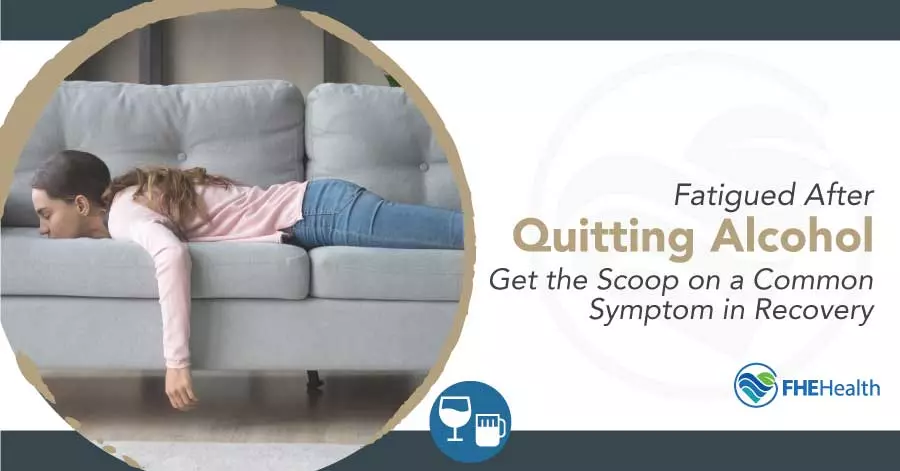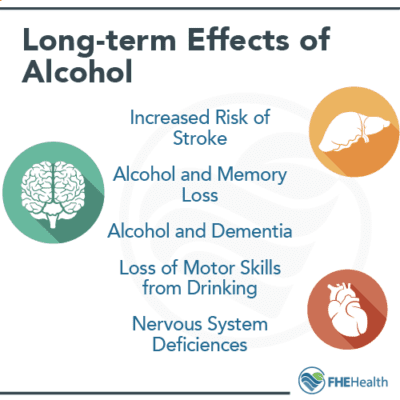
Even if you’ve never been addicted to alcohol, you probably already know that feeling of waking up tired, dehydrated, and a little nauseous from too much to drink the night before. Tiredness is normal as part of a hangover, but if you’ve ever tried to get sober, you know that extreme fatigue is a common side effect of alcohol withdrawal.
So why does fatigue after quitting alcohol happen? What follows is an in-depth look at how stopping drinking can entail fatigue, including answers to common questions about alcohol-related fatigue and tips for managing it.
How Quitting Alcohol Affects the Body

When you’re addicted to a substance, your body has come to rely on that substance being present for normal function. For example, alcohol is a central nervous system depressant, which means it slows your heart rate, respiratory rate, and brain activity, and it can also lower your blood pressure. This is why some people who drink alcohol experience feelings of calmness, relaxation, or sleepiness.
In the case of ongoing alcohol use, your body gets accustomed to operating at this level. When you stop drinking alcohol, whether overnight, for a day at work, or as part of trying to get sober, your body starts to experience withdrawal symptoms. Depending on the severity of the drinking and your overall health, unmanaged, cold-turkey alcohol withdrawal can be very unpleasant.
Symptoms of Alcohol Withdrawal
Some common symptoms of alcohol withdrawal include:
- Extreme fatigue
- Headache
- Nausea
- Vomiting
In severe cases, those who are addicted to alcohol and try to detox from alcohol may experience alcohol withdrawal syndrome and delirium tremens. This is a very serious condition that can cause seizures, dangerous spikes in blood pressure and heart rate and even hallucinations. If you think you’re experiencing symptoms of delirium tremens, seek medical care immediately.
Common Questions About Alcohol, Fatigue, and the Solution

Fatigue is one of the most frequently experienced symptoms on the above list. It’s, therefore, not surprising to come across questions about it in chat rooms and forums. Some of the most commonly asked questions about the side effects of quitting drinking and their answers are as follows:
Do you feel tired when you stop drinking?
Yes. Drinking and tiredness go hand-in-hand. Many people feel tired when they stop drinking, whether that means after a night of over-indulging or in the early days of sobriety.
You also don’t have to be a heavy drinker or someone who binges on alcohol to experience alcohol-induced exhaustion. Someone who goes to the bar with a friend and has one too many drinks can also experience lethargy the next day. We know this to be true on the basis of the answer to the next question.
Does drinking alcohol cause fatigue?
Yes. Even just a beer or a couple of glasses of wine are known to make many people feel sleepy and pleasantly relaxed. However, extreme fatigue is more likely to occur in the aftermath of heavy or binge drinking or excess alcohol consumption.
Any level of alcohol use can contribute to dehydration, which in turn causes blood pressure to drop and circulation to slow. When less oxygen and blood flow reach the brain, tiredness sets in.
Heavy alcohol use also affects circadian rhythms, disturbing sleep so that you’re not getting a satisfying night’s rest. Fatigue is then a natural byproduct.
What does it mean when an alcoholic sleeps a lot?
When an alcoholic sleeps a lot, it can mean one or more things. A pattern of heavy alcohol use often correlates with daytime sleepiness. For instance, a study in 2014 found that roughly 15 percent of heavy drinkers experienced daytime sleepiness.
Alcohol consumption is also associated with higher rates of sleep disorders like insomnia and obstructive sleep apnea. People who suffer from these disorders are often sleepy during the day. They may take short cat naps throughout the day or frequently complain of being tired.
Worse yet, daytime sleepiness from a combination of alcohol consumption and sleep apnea reportedly raises the chances of being involved in a fatigue-related car accident.







